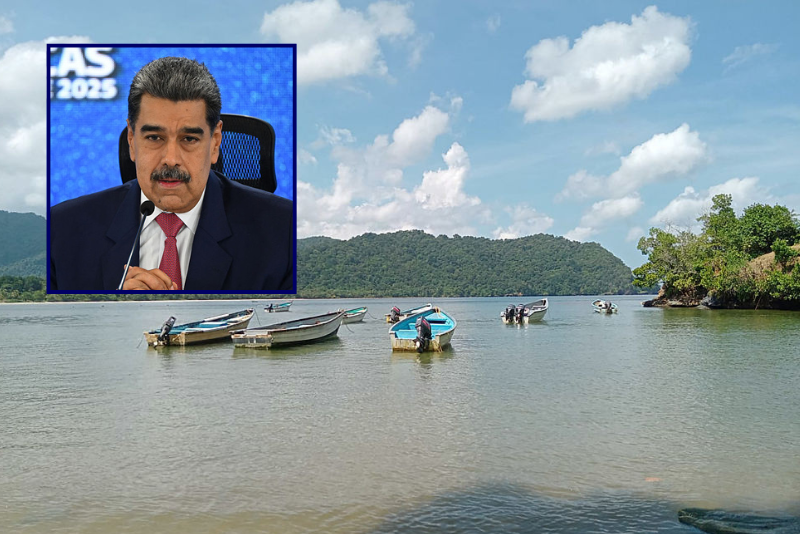
OAN Staff Katherine Mosack and Brooke Mallory
12:00 PM – Friday, October 17, 2025
The U.S. Military is holding survivors from a suspected drug-trafficking vessel that was struck in the Caribbean earlier this week. The detentions appear to be the first known instance in which survivors have been taken into custody after a U.S. maritime strike in the region.
According to two U.S. officials who spoke to the press on the condition of anonymity, the two survivors were rescued from the water and are currently being held aboard a U.S. Navy warship — after the vessel they were on was targeted in a recent counter-narcotics operation.
The two men are being interrogated and processed, according to AP News.
The Caribbean has become an increasingly active corridor for drug trafficking as law enforcement pressures have intensified in the Pacific and Central American regions. U.S. officials have described the operations as part of a broader effort to “disrupt transnational criminal networks” that finance organized crime and corruption across the hemisphere.
On Thursday, U.S. forces struck what was believed to be a submersible or semi-submersible vessel, killing at least one person and leaving behind two survivors. The Pentagon has since classified those smuggling illegal drugs into the United States as narco-terrorists, framing drug trafficking as not just a criminal activity, but a direct threat to national security.
This incident marks the first strike to yield survivors since the U.S. launched its maritime crackdown on drug trafficking in September — a campaign that has resulted in at least 27 deaths overall — according to the Trump administration.
On Wednesday, President Donald Trump also confirmed that he had authorized the Central Intelligence Agency (CIA) to conduct covert operations in Venezuela, leading to speculation from the country’s socialist president, Nicolas Maduro, that the U.S. was trying to “undermine” him.
The U.S. has accused the socialist president of having ties to Venezuela’s major drug trafficking and organized criminal networks, allegations that he vehemently denies, insisting that they are “politically motivated attacks” on his socialist government.
The U.S. has also offered a $50 million reward for information leading to the arrest and/or conviction of Maduro. The substantial increase from the previous $25 million reflects the government’s intensified stance against him, whom it accuses of being a “narco-terrorist” with an illegitimate administration.
Attorney General Pam Bondi described Maduro as one of the “world’s most notorious narco-traffickers” and a “threat to national security,” citing his accused collaboration with foreign terrorist organizations such as Tren de Aragua (TdA) and the Sinaloa Cartel.
On Thursday, Samuel Moncada, Venezuela’s ambassador to the United Nations (UN), called the recent U.S. strike “a new set of extrajudicial executions.” He called on the UN Security Council to investigate what he termed a “series of assassinations” following five lethal attacks since September.
In contrast, Trinidad and Tobago’s Prime Minister, Kamla Persad-Bissessar, publicly commended a U.S. naval strike on a vessel suspected of carrying narcotics, declaring that all drug traffickers should be dealt with “violently.” Her statement exemplifies the devastating impact of the region’s violent drug trade on neighboring nations.
Trinidad and Tobago, a dual-island Caribbean nation, lies around 7 miles from Venezuela.
Stay informed! Receive breaking news blasts directly to your inbox for free. Subscribe here. https://www.oann.com/alerts
What do YOU think? Click here to jump to the comments!
Sponsored Content Below

